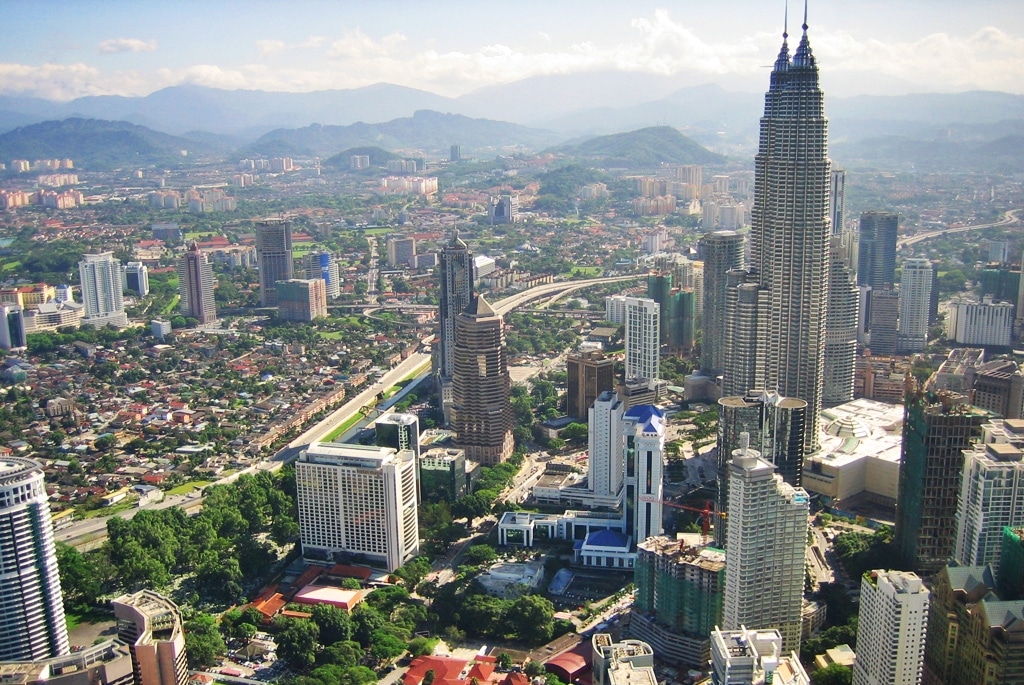In Malaysia’s largest city, Kuala Lumpur, rapid urban growth resulted in significant loss of greenspace from 2001-2013. (Kanniah, 2017) To slow this trend, the city instituted a program called “Greening KL,” which aimed to plant 100,000 trees by 2020. (Kanniah, 2017) This bold goal was achieved in 2014, and planting efforts still continue. (Ismail et al, 2018)
In this tropical capital, trees moderate the microclimate and increase thermal comfort for residents. In a recent study, roadside trees in Kuala Lumpur with dense canopies reduced the mean radiant temperature – a holistic measure of thermal comfort — by 35% and reduced the perceived ambient temperatures to pedestrians. (Zaki et al, 2020) Overall, beneath tall trees, the average surface temperatures decreased by 5.4°C and average air temperatures decreased by 1.3°C. (Zaki et al, 2020)

To create broad support for its forest, Kuala Lumpur is also exploring public-private partnerships with pocket park sponsorship. These partnerships leverage funding from the private sector for public development. Corporations interested in social responsibility programs fund maintenance and upgrades for the park, but the benefits of these public greenspaces extend to the community. At least five financial institutions, including the Standard Chartered Bank, have participated so far. (Kanniah, 2017)